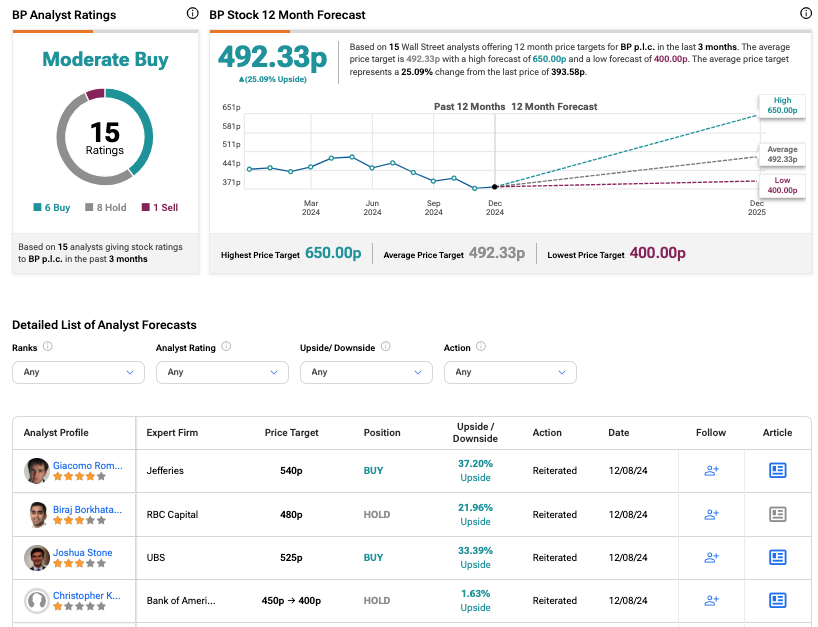UK-based BP PLC (GB:BP) has partnered with Japan’s JERA to establish an offshore wind joint venture. The new 50/50 joint venture, JERA Nex bp, will rank among the world’s largest offshore wind developers and operators. The deal highlights BP’s shift from large investments in renewable energy to refocusing on its core oil and gas business. Following the announcement, BP shares gained nearly 5% on Monday.
Discover the Best Stocks and Maximize Your Portfolio:
- See what stocks are receiving strong buy ratings from top-rated analysts.
- Filter, analyze, and streamline your search for investment opportunities with TipRanks’ Stock Screener.
BP is a multinational energy company that explores, produces, and distributes oil and natural gas. Meanwhile, JERA is a power generation company in Japan, with a focus on thermal power and liquefied natural gas (LNG).
BP Reveals Details of Joint Venture with JERA
This joint venture combines JERA’s 1GW (gigawatt) of operating offshore wind farms with BP’s extensive development pipeline, boasting a potential capacity of 13GW. Both partners have committed to providing up to $5.8 billion in funding for projects approved by the joint venture through 2030. BP will contribute up to $3.25 billion in capital funding, while JERA will provide $2.55 billion.
BP’s CEO Murray Auchincloss referred to the joint venture as a leading global wind developer, highlighting its capital-light model aimed at benefiting shareholders.
Auchincloss, who joined BP in January 2024, has faced significant pressure from shareholders amid concerns about its energy transition strategy. Consequently, under Auchincloss, BP has retracted its previous commitment to becoming a leader in offshore wind. The company has also reduced its renewable energy investments to concentrate on oil and gas.
Is BP a Good Share to Buy?
According to TipRanks, BP stock has a Moderate Buy consensus rating based on six Buys, eight Holds, and one Sell assigned in the last three months. At 492.33p, the BP share price target implies an upside of 25.09%.
Year-to-date, BP shares have declined by almost 16%.










